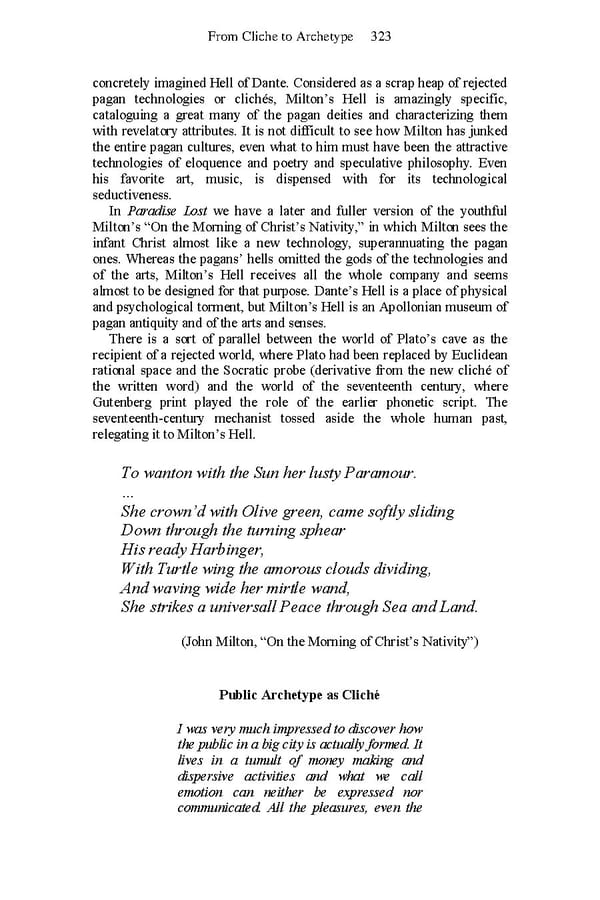From Cliche to Archetype 323 concretely imagined Hell of Dante. Considered as a scrap heap of rejected pagan technologies or clichés, Milton’s Hell is amazingly specific, cataloguing a great many of the pagan deities and characterizing them with revelatory attributes. It is not difficult to see how Milton has junked the entire pagan cultures, even what to him must have been the attractive technologies of eloquence and poetry and speculative philosophy. Even his favorite art, music, is dispensed with for its technological seductiveness. In Paradise Lost we have a later and fuller version of the youthful Milton’s “On the Morning of Christ’s Nativity,” in which Milton sees the infant Christ almost like a new technology, superannuating the pagan ones. Whereas the pagans’ hells omitted the gods of the technologies and of the arts, Milton’s Hell receives all the whole company and seems almost to be designed for that purpose. Dante’s Hell is a place of physical and psychological torment, but Milton’s Hell is an Apollonian museum of pagan antiquity and of the arts and senses. There is a sort of parallel between the world of Plato’s cave as the recipient of a rejected world, where Plato had been replaced by Euclidean rational space and the Socratic probe (derivative from the new cliché of the written word) and the world of the seventeenth century, where Gutenberg print played the role of the earlier phonetic script. The seventeenth-century mechanist tossed aside the whole human past, relegating it to Milton’s Hell. To wanton with the Sun her lusty Paramour. … She crown’d with Olive green, came softly sliding Down through the turning sphear His ready Harbinger, With Turtle wing the amorous clouds dividing, And waving wide her mirtle wand, She strikes a universall Peace through Sea and Land. (John Milton, “On the Morning of Christ’s Nativity”) Public Archetype as Cliché I was very much impressed to discover how the public in a big city is actually formed. It lives in a tumult of money making and dispersive activities and what we call emotion can neither be expressed nor communicated. All the pleasures, even the
 Essential McLuhan Page 329 Page 331
Essential McLuhan Page 329 Page 331